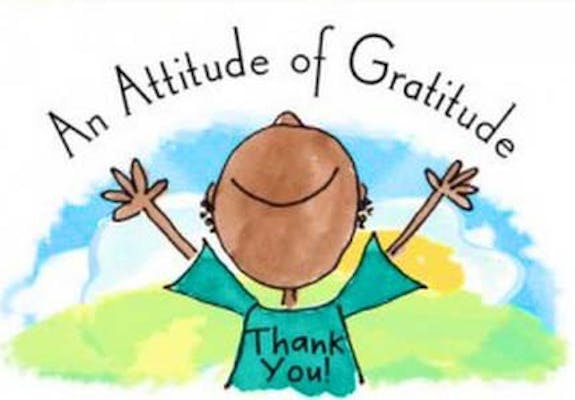
The Attitude of Gratitude
I wonder how good you are at writing thank you letters. As a child, writing thank you letters after Christmas was always a chore, something to be done simply to please parents. It wasn’t that I was ungrateful, it was just that sitting down to write a letter, when surrounded by so many new toys, was hard.
Developing an attitude of gratitude can be difficult. It can require discipline and determination (especially at times like these), but it can bring significant blessings. Research shows that, as well as improving our happiness, gratitude also has the power to heal. Paul Mills, a Professor of Family Medicine and Public Health at the University of California San Diego School of Medicine, found that the more grateful people were, the healthier they were. He discovered that “They had less depressed mood, slept better and had more energy.”
In one study, Mills asked participants to keep a journal most days of the week, writing about 2-3 things they were grateful for (everything from appreciating their children to travel and good food). He found that they had reduced levels of inflammation and improved heart rhythm compared to people who did not write in a journal.
Research from psychologist Robert Emmons suggests that gratitude has two elements - affirmation and recognition.
- Gratitude begins with affirming the good. It’s about noticing that there is good in us as individuals, in others, and in the world around us. Gratitude doesn’t deny pain, or unhappiness, but it focuses on the good.
- Gratitude then expands to recognise that the source of this good is beyond oneself. Often the good comes from other people, but it could be any source beyond us, including God. Gratitude is acknowledging that we have been given gifts, big and small, to help us live life well.
Two thousand years ago the apostle Paul instructed the church in Thessalonica to ‘Rejoice always, pray continually and give thanks in all circumstances; for this is God’s will for you in Christ Jesus’.
Perhaps at the beginning of this new year, rather than letting my attention focus on the bad news (of which there is plenty), I should develop a greater appreciation of the good things I have been given and be thankful. I might even find it easier to write those thank you letters!
Happy New Year,
Andrew.
